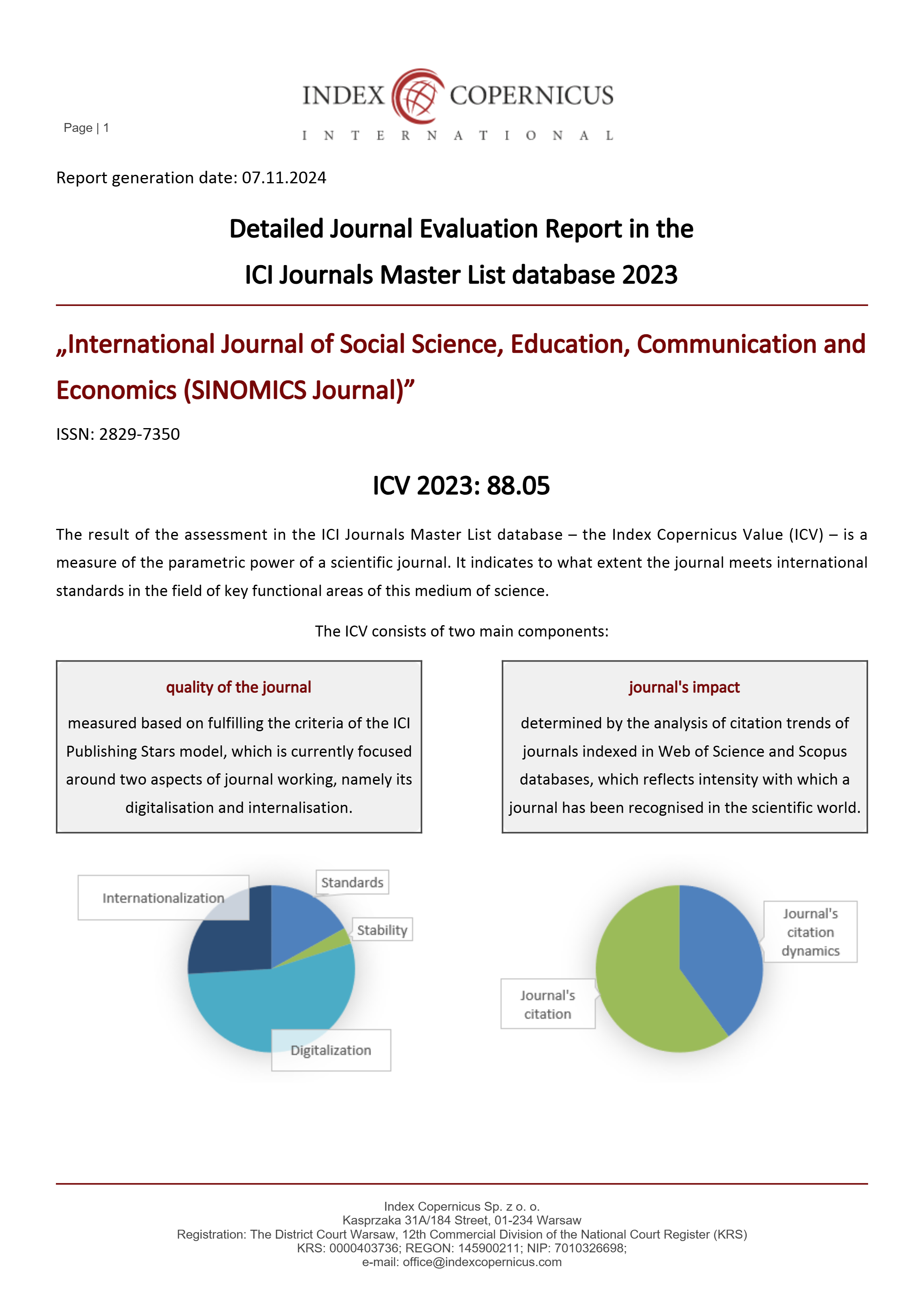Democracy and Bureaucracy: A Bibliometrics Comparative Analysis on the Developed and Developing Countries
Main Article Content
Eliza Meiyani
Delila Putri Sadayi
Fadhil Hayan Mochammad
This study aims to analyze the development of democratic and bureaucratic theories that occur in developed and developing countries. The author identifies this research by analyzing journal articles that are indexed by Scopus as journals with reputable and accountable research outputs. The Scopus database was used as data in this study. This study uses a comparative qualitative method of analysis by comparing documents published in developed and developing countries. The results of this study show that; 1) The development of research related to democracy and bureaucracy based on the Scopus database has decreased significantly in 2017-2020, increased in 2021 and decreased again in 2022. 2) The predominance of research related to democracy and bureaucracy occurs in the United State, where the country is a full-fledged democracy. 3) The connectedness of the study during 2015-2022 is divided into 8 clusters, each cluster displays a comparison of countries with the interconnectedness between countries involved in the research. 4) The high weberianess of the state bureaucracy is due to the professional public administration before democracy combined with electoral competition and non-ethnic politics. Brazil, South Korea, and Taiwan are examples. Argentine hyper-presidentialism exacerbates top-down politicization of public administration and personalist patronage.
Berg-Schlosser, D., De Meur, G., Rihoux, B., & Ragin, C. C. (2009). Qualitative comparative analysis (QCA) as an approach. Configurational Comparative Methods: Qualitative Comparative Analysis (QCA) and Related Techniques, 1, 18.
Chaskin, R. J. (2005). Democracy and bureaucracy in a community planning process. Journal of Planning Education and Research, 24(4), 408–419.
Dahlberg, S., & Holmberg, S. (2014). Democracy and bureaucracy: How their quality matters for popular satisfaction. West European Politics, 37(3), 515–537.
de Avila Gomide, A. (2022). Democracy and bureaucracy in newly industrialized countries: A systematic comparison between Latin America and East Asia. Governance, 35(1), 83–102.
Farazmand, A. (2010). Bureaucracy and democracy: A theoretical analysis. Public Organization Review, 10(3), 245–258.
Farhang, S. (2018). Legislating for Litigation: Delegation, Public Policy, and Democracy. Calif. L. Rev., 106, 1529.
Gilad, S., & Alon‐Barkat, S. (2018). Enhancing democracy via bureaucracy: Senior managers’ social identities and motivation for policy change. Governance, 31(2), 359–380.
Kirilmaz, H. (2020). The Role of Bureaucracy in Turkey’s Democratization Process: One-Party Period and Transition to Multi-Party System.
La Porte, T. M., Demchak, C. C., & De Jong, M. (2002). Democracy and bureaucracy in the age of the web: empirical findings and theoretical speculations. Administration & Society, 34(4), 411–446.
Meier, K. J. (2019). Theoretical frontiers in representative bureaucracy: New directions for research. Perspectives on Public Management and Governance, 2(1), 39–56.
Meier, K. J., Compton, M., Polga-Hecimovich, J., Song, M., & Wimpy, C. (2019). Bureaucracy and the failure of politics: Challenges to democratic governance. Administration & Society, 51(10), 1576–1605.
Nwoba, M. O. E., & Nwokwu, P. M. (2018). Democratization of public bureaucracy in Nigeria: Implications for civil service efficiency. South East Journal of Political Science, 4(1).
Ouziel, L. M. (2020). Democracy, bureaucracy, and criminal justice reform. BCL Rev., 61, 523.
Peters, B. G. (2010). Bureaucracy and democracy. Public Organization Review, 10(3), 209–222.
Rihoux, B., Rezsöhazy, I., & Bol, D. (2011). Qualitative comparative analysis (QCA) in public policy analysis: an extensive review. German Policy Studies, 7(3), 9–82.
Schneider, C. Q., & Wagemann, C. (2010). Standards of good practice in qualitative comparative analysis (QCA) and fuzzy-sets. Comparative Sociology, 9(3), 397–418.
Sengar, S. S. (2019). Administrative Discretion: Bureaucracy in Democracy. Supremo Amicus, 9, 308.
Stivers, C. (2018). Democracy, bureaucracy, and the study of administration. Routledge.
Thomann, E., & Ege, J. (2020). Qualitative comparative analysis (QCA) in public administration. Oxford Research Encyclopedia of Politics.
Thomann, E., & Maggetti, M. (2020). Designing research with qualitative comparative analysis (QCA): Approaches, challenges, and tools. Sociological Methods & Research, 49(2), 356–386.
Tiwari, A. K. (2012). Corruption, democracy and bureaucracy. Theoretical and Applied Economics, 9(9), 17.










